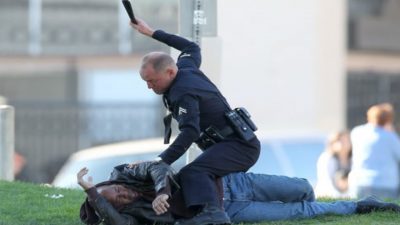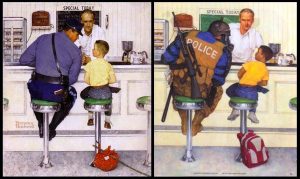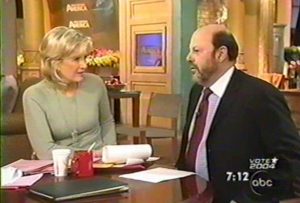
California relaxes one of the nation’s most restrictive laws on police personnel records
“But lawyers who are routinely on the other side say those concerns don’t outweigh the problem with Pitchess: Judges routinely disclose little or nothing. One such lawyer is Jerry Steering of Newport Beach, whose practice primarily consists of suing the police. He says Pitchess motions are “a scam and a lie.””

Shutterstock
In 1976, the Los Angeles Police Department shredded four tons of citizen complaints against the police with “the specific intent,” a judge said, “of depriving criminal defense attorneys of potential evidence to which they were legally entitled.”
Remarking on the destruction of those documents, Los Angeles Municipal Court Judge George Trammell said that such behavior “should shock the conscience.” His comments came before he dismissed misdemeanor charges against multiple defendants who had requested such records.
The shredding of citizen complaints was in reaction to a 1974 California Supreme Court ruling that criminal defendants had a right to discovery of documents showing a history of police misconduct. Law enforcement had fought the case bitterly and was not pleased by the flood of discovery requests that resulted. The city attorney’s office, which prosecutes misdemeanors in Los Angeles, had therefore advised the LAPD to get rid of the evidence, citing low morale at the department. Judges like Trammell were dismissing affected cases as a sanction.
By 1978, both the shredding and the dismissals were becoming local scandals. So the California legislature clamped down that year on access to police personnel records, with a bill expressly intended to limit discovery and stop what the attorney general’s office—which drafted the bill—characterized as “fishing expeditions” and harassment of officers. For the past four decades, releases have been up to a judge’s discretion and so strictly limited that even prosecutors have had trouble getting information.
Effective Jan. 1, that changed. A new California law, SB 1421, makes certain police personnel records available through California’s public records law—not just to defense lawyers or prosecutors, but to anyone who asks. The information available is limited to specific kinds of misconduct and will be scrubbed of most personal information. But some police misconduct lawyers still see it as a win.
“You’ll get them sooner [rather] than later, and I think importantly so, even if no lawsuit has been filed,” says John L. Burris, a civil rights lawyer in Oakland, California. “And it’s in the public interest. So I think it’s important.”
A ‘careful Balancing’
Under the 1978 law, anyone who wants information on police misconduct must ask a judge through what’s called a Pitchess motion, named for Peter Pitchess, the Los Angeles County sheriff who fought the personnel records case up to the California Supreme Court. That process allows parties seeking information to request personnel records or records involving excessive force, dishonesty, theft or general “moral turpitude.”
Judges decide not only whether to release the records, but also what specific information from those records is relevant enough to release. To do that, they examine the material in chambers, accompanied only by someone from the police agency and their designees. Anything released is limited to the five years prior to the alleged crime or police misconduct incident at the center of the case. The records can’t be made public, used outside of that court proceeding or even shared with the side that did not request the records.
Strict limits on disclosure of police personnel records are not uncommon—but the Pitchess process put California’s among the strictest, according to Jonathan Abel, who surveyed personnel records disclosure laws in a 2015 Stanford Law Review paper.
“As a general statement, I think California is unique in how restrictive it was,” says Abel, a visiting assistant professor at the University of California at Irvine Law School.
In some of the more restrictive states, defense lawyers and others have responded by creating their own databases of police misconduct information, such as the Citizens Police Data Project in Chicago. It’s not uncommon for police departments or prosecutors’ offices to maintain their own databases as well. Abel’s paper, “Brady’s Blind Spot,” points out a good reason for that: Prosecutors have obligations to disclose exculpatory information under Brady v. Maryland. They might also prefer to know whether a law enforcement witness is impeachable. Pitchess makes that harder, he says.
Police agencies and their allies don’t usually see it that way. David Mastagni, a lawyer at Mastagni Holstedt in Sacramento, which has an extensive practice defending law enforcement officers, calls this a “careful balancing” between the interests of defendants or litigants and law enforcement. Without it, he says people might be able to dig up irrelevant but embarrassing information, such as the officer’s cheating on a spouse. Brian Marvel, president of the Peace Officers Research Association of California, a police union, adds that law enforcement leaders sometimes use discipline systems to retaliate against officers for things like union involvement.
“A lot of times, departments will stack a variety of charges on an officer, especially for somebody that they don’t want in the department anymore,” he says.
But lawyers who are routinely on the other side say those concerns don’t outweigh the problem with Pitchess: Judges routinely disclose little or nothing. One such lawyer is Jerry Steering of Newport Beach, whose practice primarily consists of suing the police. He says Pitchess motions are “a scam and a lie.”
Judges will “only order that you get the name, address and phone number of a person who made a complaint against the cop,” he says. “You don’t get the person’s statement, you don’t get the police report if there was an arrest, no internal affairs report.”
Although judges have discretion to disclose more in response to a Pitchess motion and sometimes do, Steering’s experience is widely reported by California defense lawyers. Burris, who also has an extensive police misconduct practice, says it’s been easier for him in criminal cases, where he generally gets names of complaining citizens and the types and dates of the complaints. It’s different in civil court.
“We have found that … the judges in civil cases were less inclined to give out useful information” under Pitchess, he says.
Sustained Complaints
SB 1421 is an attempt to address that. It permits any member of the public to request records from law enforcement or prison guard agencies under the California Public Records Act. Those records are limited to reports of officer-involved shootings; use of force by an officer leading to death or great bodily injury; sustained complaints of sexual assault; and sustained complaints of dishonesty in reporting, investigating or prosecuting a crime.
Neither side is embracing the new law wholeheartedly. Burris says the requirement that certain complaints be sustained is a limitation that Pitchess doesn’t have.
“Most police departments do not find against the officers in highly controversial cases, such as a shooting case, a death case,” he says. “And maybe cases where perjury is found.”
Steering is even more cynical. He says he’s met one honest officer in 34 years of suing the police.
This bill won’t help much, he says.
“It’s just for shooting cases,” he says. “It’s not for your run-of-the-mill, resisting arrest, battery on a peace officer case. The agency will just say it’s not great bodily injury.”
On the other side, Mastagni says he’s concerned that SB 1421 could expose witnesses in criminal cases to retaliation, thus discouraging cooperation. The bill calls for their names to be redacted from publicly released information, but with the advent of body cameras, their faces could be public record.
“We’ve seen some of this where the identity has been released and they’ve had people swarming on their houses, and they’ve had to come out and publicly apologize for calling the police,” he says.
There are other restrictions; officers’ personal information and the names of witnesses are to be protected, and in the case of active investigations, agencies can make a showing that releasing records would interfere. Marvel, the police union president, says some of these provisions are the result of conversations he and others had with state Sen. Nancy Skinner, a Democrat from Berkeley, early and often about what the bill should contain.
“I know we have some specific issues regarding this bill,” Marvel says. “But Senator Skinner was much more approachable in wanting to have those types of conversations.”
Skinner herself says those conversations were part of why she was able to pass the bill, where previous attempts to replace the Pitchess process had failed.
She also believes her bill benefited from those past efforts as well as increased public interest in police accountability because of high-profile shootings like that of Stephon Clark in Sacramento. And some police chiefs themselves endorsed the bill, she says.
“They felt frustrated that when there were incidents and the community was demanding a right to know … they weren’t really able to release anything public about that,” she says. “So it was creating a wider gulf of mistrust between communities and law enforcement.”
See, original Article in the March 2019 ABA Journal at http://www.abajournal.com/magazine/article/california-police-personnel-records/?fbclid=IwAR3yDUVcqNo62ORUiYlullZxLVZjfsdBG0Umh75Ia7ZohvOmWLRTcfz5jbk






